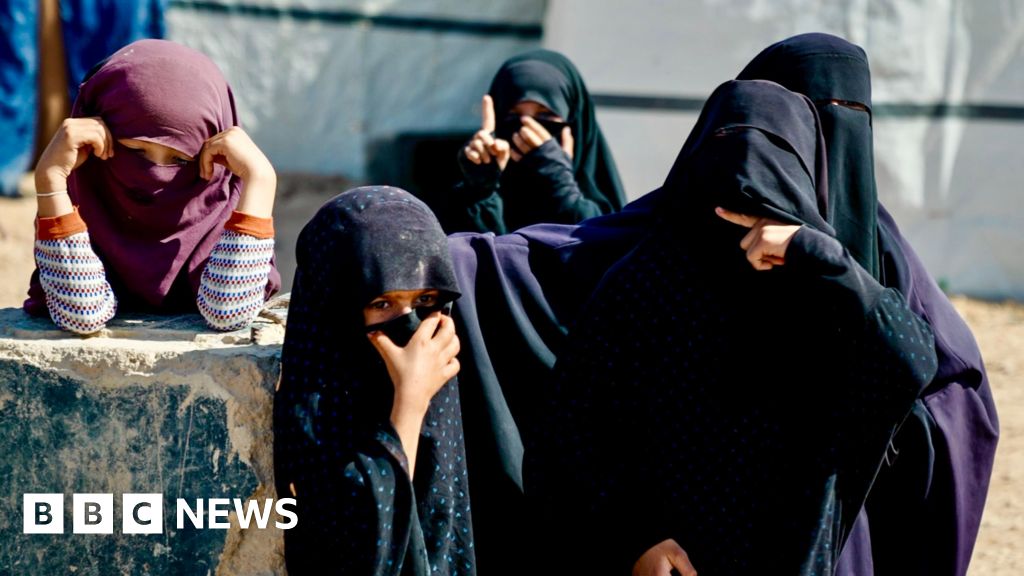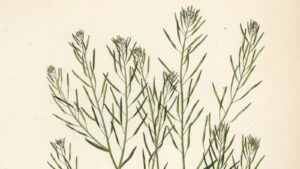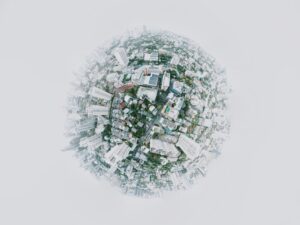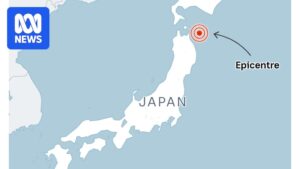
In the ever-evolving landscape of Syria, the battle against the Islamic State (IS) persists, particularly in the Kurdish-controlled northeast. Despite slipping from global headlines due to larger conflicts elsewhere, Kurdish counter-terrorism officials have informed the BBC that IS cells are regrouping and escalating their attacks.
Walid Abdul-Basit Sheikh Mousa, a 21-year-old with a passion for motorbikes, was among those who took up arms against IS. His life was cut short in February during combat against the militants in northeastern Syria. Walid had joined the Kurdish-led Syrian Democratic Forces (SDF) at 18, determined to fight extremism, a decision that ultimately led to his death.
A Family’s Loss and the Fight Against IS
Gathered in their home in Qamishli, Walid’s family shared memories of his short life. “I see him everywhere,” said his mother, Rojin Mohammed, recalling her son’s affectionate nature. Walid, the youngest of eight siblings, was known for his charm and determination.
His mother, through tears, expressed a desire for revenge against IS. “They broke our hearts,” she lamented. “We buried so many of our young. May Daesh (IS) be wiped out completely.”
According to Kurdish officials, IS is exploiting the security vacuum created by the ousting of Syria’s long-time dictator Bashar al-Assad last December. “There’s been a 10-fold increase in their attacks,” stated Siyamend Ali, a spokesman for the People’s Protection Units (YPG), a key component of the SDF.
The Complex Role of Kurdish Forces
The YPG, considered a terrorist group by Turkey but a crucial ally by the US, has suffered significant losses in the fight against IS. In the past year, 30 YPG fighters have died, while 95 IS militants have been captured. Kurdish authorities are currently detaining around 8,000 suspected IS fighters from 48 countries, including the UK, US, Russia, and Australia, in prisons across the northeast.
The largest facility, al-Sina prison in Al Hasakah, houses detainees who once terrorized large swathes of Syria and Iraq. These men, now thin and weak, are held indefinitely, with no trials or convictions. The prison environment is harsh, with tuberculosis rampant and no access to outside information.
Rebuilding Behind Bars
Despite the conditions, IS is reportedly reorganizing within the prison. A prison commander, speaking anonymously for security reasons, noted that each wing has an emir who issues fatwas and maintains influence over detainees. The presence of leaders within the prison raises concerns about the potential for IS to rebuild its networks.
Hamza Parvez, a former IS fighter from London, described his dire situation, claiming his life is at risk due to the spread of tuberculosis within the prison. “I’m on my deathbed… in a room full of tuberculosis,” he said, pleading for a return to the UK.
The Plight of IS Families
While fighters are held in prisons, their families, including women and children, live in sprawling camps like Roj and al-Hol. These camps, described by human rights groups as open-air prisons, hold about 34,000 family members of IS fighters. Conditions are dire, and the ideology of IS persists among many residents.
Mehak Aslam, a Londoner detained in Roj camp, expressed a desire to return to the UK with her children. She denied joining IS but admitted to living in its territory, where her daughter was killed. “Unfortunately, my children have pretty much grown up just in the camp,” she said, highlighting the challenges faced by families trapped in these conditions.
The Next Generation
Concerns are mounting about the radicalization of children in the camps. Hekmiya Ibrahim, the camp manager, noted that many children are being indoctrinated with IS ideology. “They are the seeds for a new version of IS,” she warned, suggesting that these children could become even more hardline than their predecessors.
The situation in Syria remains complex and volatile, with Kurdish forces continuing their struggle against IS. As the international community grapples with how to handle IS detainees and their families, the risk of a resurgence looms large, threatening to destabilize the region further.







